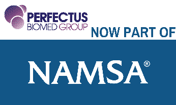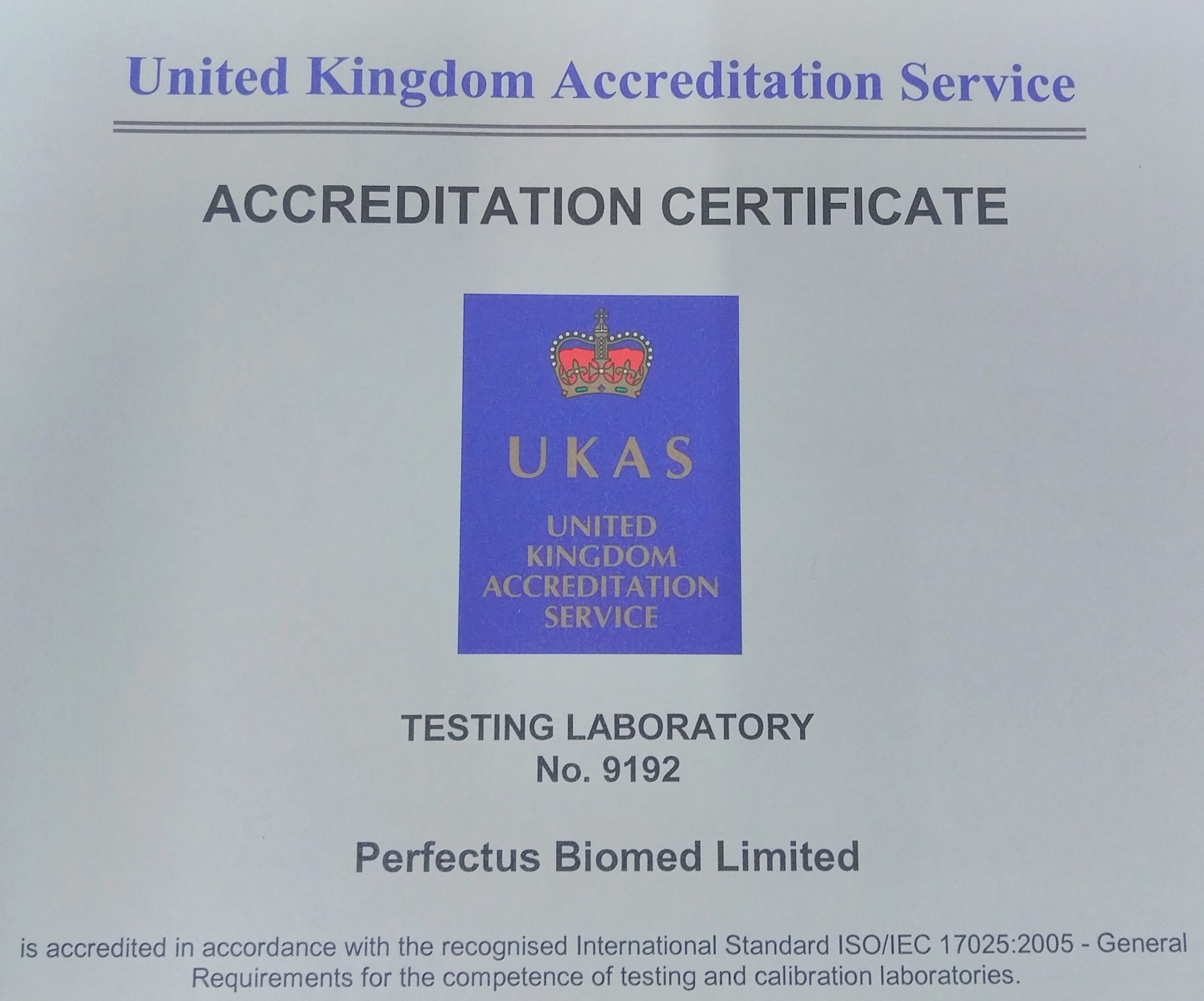UKAS ISO 17025 biofilm testing
Perfectus Biomed, experts in microbiological contract testing, are delighted to announce that we have been awarded ISO 17025 accreditation by UKAS for three biofilm test methodologies. Perfectus Biomed are the first company to offer biofilm testing capabilities in line with ISO 17025.
Throughout 2016 the Perfectus team made it a primary focus to implement the quality management system and to appropriately validate each test methodology in order to be able to offer the methods to ISO 17025 standard. The team worked in conjunction with both Flintloque Management Systems Limited and UKAS in order to achieve this goal and are thrilled to announce this key step forward for both Perfectus Biomed and the biofilm testing industry.
Our current accreditation schedule can be found on the UKAS website. The schedule includes an MBEC methodology, a CDC reactor methodology and a Drip Flow reactor methodology. The methods have been designed with both the Wound Care and Household care sectors in mind and are appropriate for the assessment of additional anti-biofilm technologies (please contact us for a technical discussion).
What is ISO 17025 accreditation?
ISO 17025 is the international standard which specified general requirements for the competence of testing laboratories. Accreditation demonstrates our commitment to the provision of a quality service and illustrates our technical competence. UKAS assesses an organisation for compliance to ISO 17025 using a number of inspectors with varying expertise. The assessments are typically carried out over two days.
What are the benefits of commissioning UKAS accredited testing?
- Assurance that the test has been carried out to a high standard and the assays produce highly repeatable data between tests, between scientists and between laboratories.
- An assurance that study measurements are taken with instruments that have been maintained and calibrated to traceable international standards.
- Organisations across the world will accept a test report issued by a UKAS accredited laboratory.

